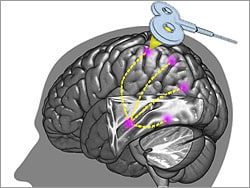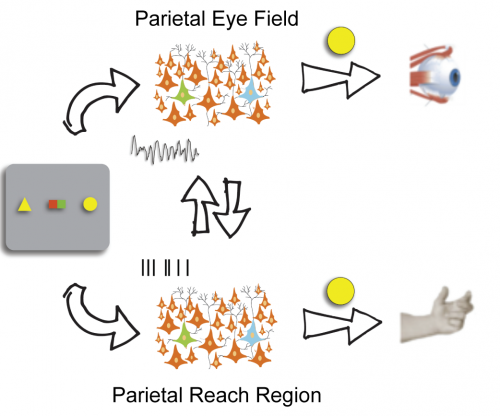Seminar Papers

Scientists have developed the new mathematical technology for mapping large connections within the white matter tissue of living human brains. Differently from previous research, the new technology gives a mathematical analysis and open-source software to decide which of the two estimates is better.
If you’re interested in this article, please click the following link and see in detail.
Read more: http://news.stanford.edu/news/2014/september/brain-communicate-wandell-091014.html
Researchers have found the effect of listening to the favorite song with the functional magnetic resonance imaging (fMRI). Listening to the song, especially favorite song, activates that the adjacent region of hippocampus, which is involved in memory and emotion. This scientific result could support that the why the emotion or mental states were experienced differently by people listening to the different genre of music.
If you are interested in this article, please click the following link or figure.

People usually know that transcranial magnetic stimulation influence only the superficial brain area. But the researchers have found that this kind of superficial stimulation can also affect the inner brain such as hippocampus which is involved in memory. Stimulation by using the repeated TMS alter the network connectivity with the center of hippocampus. If you are interested in this article, please check out the following link.
Read more: http://www.medscape.com/viewarticle/830610

Researchers have developed the new technique being able to work as like fMRI. This device is called diffuse optical tomography. This device generates some tiny red lights to a subject’s scalp. Using this technique, the researchers can recover the fMRI-like image which enables to measure changes of blood flows in the human brain.
If you are interested in this article, please click the link.
Link: http://www.scientificamerican.com/article/tiny-lights-could-illuminate-brain-activity/

Researchers tried to prove that the hypothesis about relation between parietal reach region and the parietal eye field. With EEG, the processing of arm movements is figured out after receiving visual signal from our eyes.
If you are interested in this news, please click the following link.
Link: http://medicalxpress.com/news/2014-08-brain-interact-cognitive.html

The strange 5 stories of the neuroscience patients were introduced in this news. It can alter the aspects of the brain.
If you interested in this news, please click the following link :-)

Forming and recalling the memory is one of the important ability for human. Some researchers have found the key region of processing the visual and sensory input as well as memory. Through this finding, device stimulating that brain region is developed to help the patient with memory disorder.
Please check out the following link.
Read more: http://www.medicalnewstoday.com/articles/279461.php

The researchers have found that the early life stress influences to the level of achieveness, romantic emotion and so on.
In detail, the children who were suffered from physically abuse and experienced any of these early life stresses have smaller amygdala and hippocampus. This findings suggest an important thing that the size or shape of brain affects how these individuals will become in the future.
If you are interested in this news, Please click the following link of figure:
Researchers have identified that brain has the same neural circuit for empathy and violence. Due to this circuit works as the binary codes, the induced feeling of empathy inhibits the intention of violent behavior.
If you are interested in this news, please click the following link or figure ;)
It is said that the executive function is influenced by the musical training. Because the executive function predicts more the academic ability than the IQ, music education helps to the children with ADHD.
Please check out the link below if you are interested in this news.
http://www.classical-music.com/news/another-study-proves-link-between-music-education-and-brain

